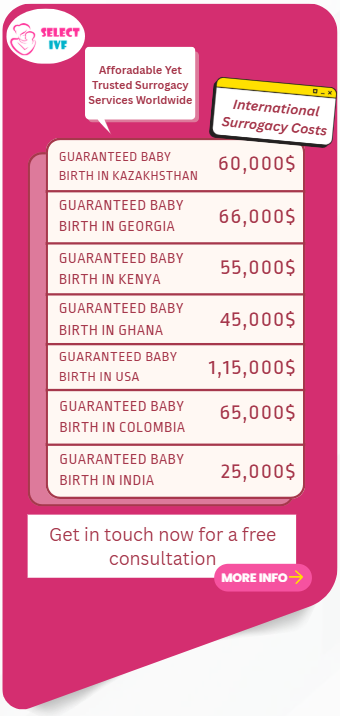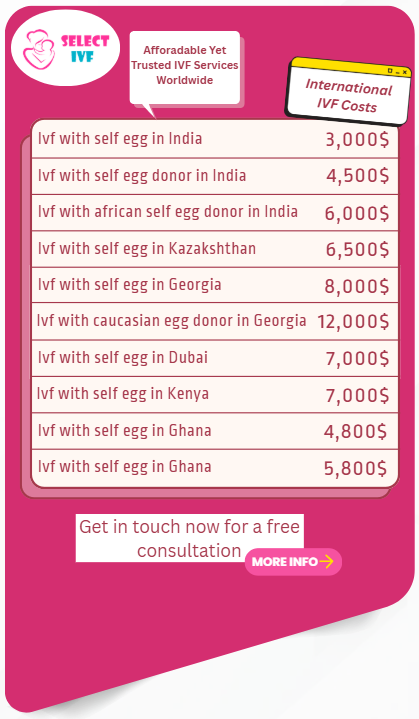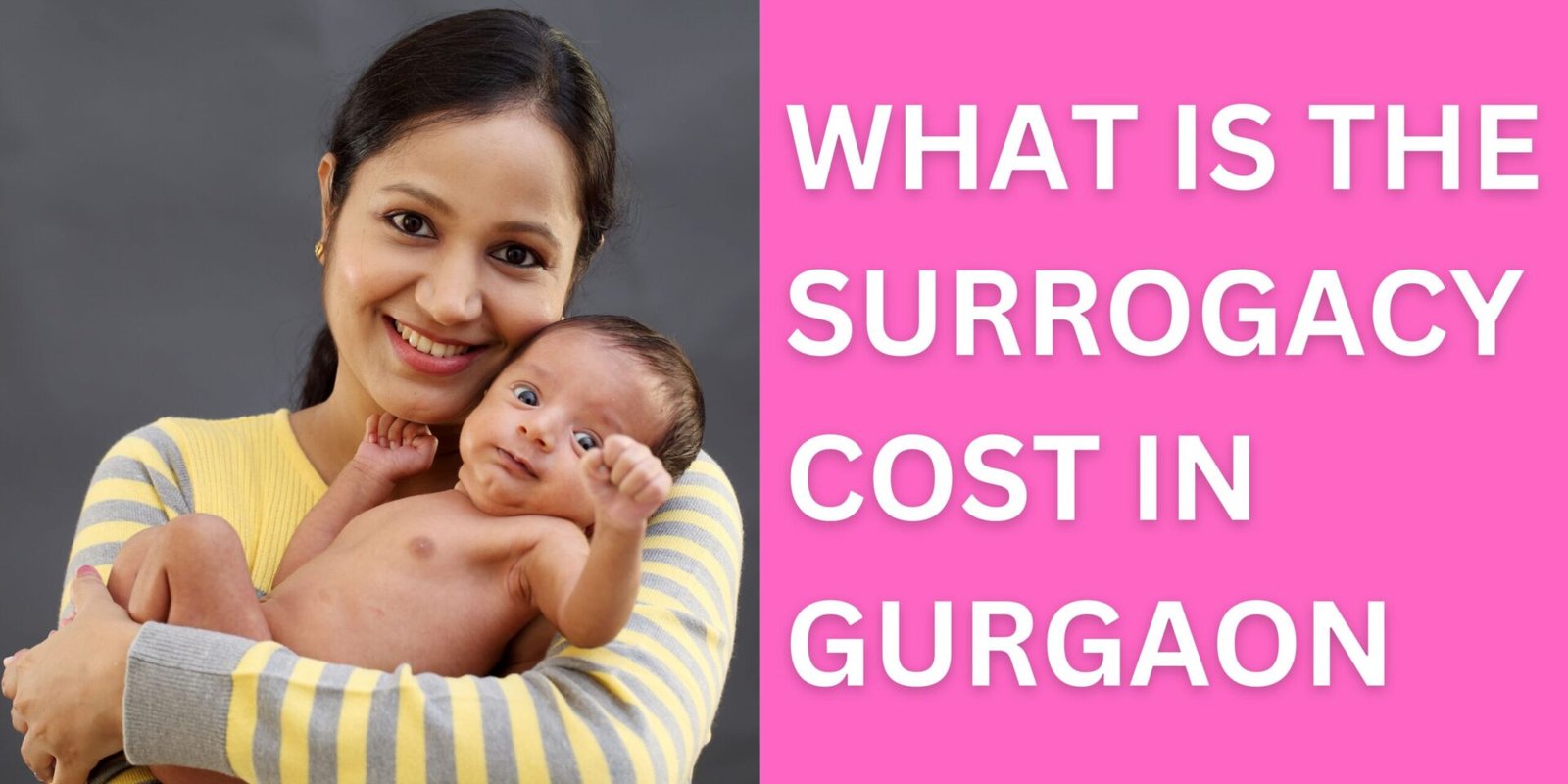Gay surrogacy is a transformative practice that has empowered LGBTQ+ couples to overcome biological barriers and fulfill their dreams of building families. Surrogacy has emerged as a ray of equality and optimism in a world where same-sex couples’ reproductive options were traditionally constrained.
The LGBTQ+ community has long faced challenges when it comes to starting a family. Biological constraints, societal prejudices, and legal barriers have historically hindered their path to parenthood. However, with advancements in reproductive technology and changing social attitudes, Gay surrogacy has gained momentum as a viable and empowering solution.
Surrogacy allows gay couples to create a biological connection with their child through the assistance of a gestational surrogate. Utilizing assisted reproductive technology, an embryo produced with donor sperm and/or eggs is placed in the surrogate’s uterus during this procedure. Throughout the pregnancy, the intended parents are closely involved, providing emotional support and forming a bond with their surrogate.
Gay surrogacy not only provides LGBTQ+ couples with the opportunity to experience the joy of parenthood but also challenges societal norms and fosters inclusivity. It emphasizes that love knows no bounds and that everyone deserves the chance to have a family, regardless of sexual orientation, and it conveys a strong message of acceptance and equality.
The influence of homosexual surrogacy on the LGBTQ+ community as a whole will be examined in this article, along with the legal framework, the emotional journey of intended parents and surrogates, the function of fertility clinics and agencies, and other related topics. Through a comprehensive examination of this empowering practice, we aim to shed light on the transformative power of Gay surrogacy in creating loving families and fostering a more inclusive society.
Definition of gay surrogacy
Gay surrogacy refers to the process in which a gay couple or gay individuals use a surrogate mother to carry and give birth to their child. It offers LGBTQ+ couples the opportunity to experience biological parenthood and build families of their own.
Importance of surrogacy for gay couples
Surrogacy plays a vital role in fulfilling the dreams of gay couples to become parents. Due to biological constraints, same-sex male couples often require the assistance of a surrogate mother to have a genetically related child. Surrogacy offers them a pathway to parenthood and brings immense joy and fulfillment to their lives.
Overview of Select IVF Centre and its commitment to LGBTQ+ fertility
Select IVF Centre is a renowned fertility center that is dedicated to providing comprehensive fertility services to LGBTQ+ individuals and couples. They understand the unique needs and challenges faced by the LGBTQ+ community and strive to create a supportive and inclusive environment for their patients.
Understanding Gay Surrogacy
Exploring the concept of surrogacy
Surrogacy involves a legal arrangement where a woman (surrogate mother) carries a pregnancy and gives birth to a child on behalf of the intended parents. In the case of gay surrogacy, the surrogate mother helps gay couples or individuals have a child by using their sperm or a donor’s sperm.
Legal and ethical considerations
Gay surrogacy presents various legal and ethical considerations that need to be carefully addressed. The rules and laws governing surrogacy might differ from one nation to another, thus it is crucial for intended parents to be aware of and compliant with those in their home country.
Psychological and emotional aspects of gay surrogacy
Gay surrogacy involves complex emotional dynamics for all parties involved. The intended parents may experience a range of emotions, including excitement, anticipation, and anxiety. The surrogate mother may also have her own emotional journey throughout the process. Psychological support and counseling play a crucial role in ensuring the well-being of everyone involved.
The role of assisted reproductive technologies (ART) in gay surrogacy
Gay surrogacy is significantly influenced by assisted reproductive technologies, such as in vitro fertilization (IVF). In IVF, an egg is fertilized by either one or both couples’ sperm before being placed in the uterus of the surrogate mother. Through ART, gay couples can establish a biological relationship with their child.

The Journey of Gay Surrogacy
Initial consultation and assessment at Select IVF Centre
The journey of gay surrogacy typically begins with an initial consultation and assessment at Select IVF Centre. During this stage, the medical team evaluates the unique circumstances of the couple or individual and provides guidance on the surrogacy process.
Matching process: Finding the ideal surrogate mother
Select IVF Centre assists in the matching process, helping gay couples or individuals find the ideal surrogate mother. Factors such as compatibility, medical history, and personal preferences are taken into consideration to ensure a positive and harmonious surrogacy journey.
Medical procedures and fertility treatments involved
The medical procedures and fertility treatments involved in gay surrogacy vary depending on individual circumstances. These may include hormonal treatments for the surrogate mother, egg retrieval and fertilization, embryo transfer, and regular monitoring to ensure the success of the pregnancy.
Legal aspects and contractual agreements
Gay surrogacy involves comprehensive legal aspects and contractual agreements to protect the rights and responsibilities of all parties involved. Select IVF Centre facilitates the legal process, ensuring that all necessary documentation is in place and that the intended parents’ rights are legally recognized.
Emotional support for the intended parents and the surrogate mother
Throughout the surrogacy journey, emotional support is crucial for the intended parents and the surrogate mother. Select IVF Centre provides counseling services and emotional support to help both parties navigate the complexities and challenges that may arise during the process.
Selecting the Right Surrogacy Agency
The importance of choosing a reputable agency
Selecting the right surrogacy agency is of utmost importance to ensure a smooth and successful surrogacy journey. A reputable agency like Select IVF Centre offers expertise, experience, and a supportive environment that is essential for the well-being of all parties involved.
Evaluating the expertise and experience of the agency
When choosing a surrogacy agency, it is important to evaluate their expertise and experience in handling gay surrogacy cases. Look for agencies that have a proven track record of successful outcomes and positive reviews from previous clients.
LGBTQ+ inclusivity and support services
LGBTQ+ inclusivity is a vital factor to consider when selecting a surrogacy agency. Ensure that the agency is knowledgeable about the unique needs and challenges faced by LGBTQ+ individuals and couples. They should provide specialized support services tailored to the LGBTQ+ community.
Success rates and testimonials
The success rates of a surrogacy agency are a good indicator of their proficiency and reliability. Inquire about their success rates and ask for testimonials from previous clients. This information can give you insight into the agency’s ability to facilitate successful gay surrogacy journeys.
Cost considerations and financial planning
Cost is an important aspect of gay surrogacy. Discuss the financial aspects with the surrogacy agency, including the overall cost, payment schedules, and any additional expenses that may arise. Proper financial planning is crucial to ensure a stress-free surrogacy process.
Costs and Financial Considerations
Breakdown of expenses in gay surrogacy
The cost of gay surrogacy can vary depending on various factors, such as the country, agency fees, medical procedures, legal fees, and compensation for the surrogate mother. A breakdown of expenses will help intended parents understand the financial commitment involved.
Understanding insurance coverage
Insurance coverage is an important consideration in gay surrogacy. It is essential to ensure that all parties involved, including the surrogate mother and the child, have adequate medical insurance coverage to mitigate any unforeseen medical expenses during the pregnancy and childbirth.
Financing options and available grants
Many surrogacy agencies, including Select IVF Centre, offer financing options to help intended parents manage the financial aspect of gay surrogacy. Additionally, research available grants or financial assistance programs that can provide support in covering the costs.
Budgeting and managing expenses effectively
Budgeting and managing expenses effectively is crucial in ensuring a smooth surrogacy journey. Consult with financial advisors, create a comprehensive budget, and track expenses meticulously. This will help you stay organized and financially prepared throughout the process.
Exploring Global Surrogacy Destinations for Gay Couples
Overview of surrogacy-friendly countries for LGBTQ+ individuals
Surrogacy laws and regulations vary from country to country. Some countries are more surrogacy-friendly and have specific laws that allow gay couples to pursue surrogacy. It is important to research and understand the legal framework in different countries before making a decision.
Legal regulations and considerations in different countries
Each country has its own legal regulations and considerations when it comes to surrogacy. These may include requirements for intended parents, eligibility criteria, citizenship and parentage laws, and the enforceability of surrogacy agreements. Understanding these factors is crucial before choosing a surrogacy destination.
Popular destinations for gay surrogacy
Certain countries have become popular destinations for gay surrogacy due to their legal frameworks, accessibility, and infrastructure. Some well-known destinations include the United States, Canada, Ukraine, and Greece. However, it is important to thoroughly research each destination and consult with legal professionals before making a decision.
Benefits and challenges of international surrogacy
International surrogacy offers various benefits, such as access to surrogacy-friendly legal systems, advanced medical technologies, and a wider pool of surrogate mothers. However, it also poses challenges, including navigating different legal systems, cultural differences, and potential language barriers. Consider these factors when exploring international surrogacy options.
Ethical Concerns and Controversies
Debating the ethics of commercial surrogacy
The ethics of commercial surrogacy are a subject of debate. Some argue that it exploits women’s bodies and commodities reproduction, while others believe that it provides a valuable service and supports reproductive autonomy. Understanding and engaging in discussions surrounding the ethical implications of commercial surrogacy is important.
Ensuring the well-being of the surrogate mother
The well-being of the surrogate mother is of utmost importance in the surrogacy process. It is crucial to ensure that she is fully informed, consents voluntarily, and receives adequate physical and emotional care throughout the journey. Ethical surrogacy agencies prioritize the health and well-being of the surrogate mother.
Addressing concerns about exploitation and human trafficking
Concerns about exploitation and human trafficking in surrogacy arrangements are valid and must be addressed. Strict regulations and ethical guidelines are necessary to safeguard the rights and protect the interests of all parties involved, particularly the surrogate mother.
Striking a balance between reproductive rights and protection
Striking a balance between reproductive rights and protection is a complex challenge. It involves ensuring the reproductive autonomy of intended parents while implementing safeguards to prevent the exploitation of surrogate mothers. This delicate balance requires ongoing discussions, policy development, and legal frameworks that prioritize the well-being of all involved.
Case Studies: Real Stories of Gay Couples
Personal narratives of successful gay surrogacy journeys
Real-life stories of gay couples who have successfully embarked on the surrogacy journey provide inspiration and valuable insights. These narratives shed light on the challenges faced, the emotional roller coaster experienced, and the ultimate joy of parenthood.
Challenges faced and lessons learned
Gay surrogacy journeys often come with their own set of challenges. These can range from legal hurdles to emotional strain and societal prejudice. Exploring the challenges faced by gay couples in their surrogacy journeys helps others understand the potential obstacles and learn from their experiences.
Overcoming societal prejudices and celebrating diversity
Society’s prejudices towards LGBTQ+ individuals and families can pose additional challenges during the surrogacy journey. Sharing stories of overcoming these prejudices not only raises awareness but also celebrates the diversity of families created through surrogacy, fostering acceptance and understanding.
The impact of parenthood on the lives of LGBTQ+ individuals
Parenthood has a profound impact on the lives of LGBTQ+ individuals. It brings joy, love, and a sense of fulfillment. Exploring the transformative power of parenthood through surrogacy helps highlight the importance of equal opportunities for LGBTQ+ individuals to create families.
Legal Considerations and LGBTQ+ Rights
Global perspective on LGBTQ+ rights and surrogacy laws
LGBTQ+ rights and surrogacy laws vary across different countries and jurisdictions. Understanding the global landscape of LGBTQ+ rights and surrogacy regulations is crucial for individuals and couples considering gay surrogacy.
Advocacy and legislative progress
Advocacy and legislative efforts play a vital role in advancing LGBTQ+ rights and ensuring equal access to surrogacy. Highlighting the progress made in different jurisdictions helps shed light on the ongoing fight for equality and inclusion.
Recognizing and protecting the rights of intended parents
Recognizing and protecting the rights of intended parents in surrogacy arrangements is essential. Legal frameworks should ensure that intended parents, regardless of their sexual orientation, have the same rights and responsibilities as any other parent.
Navigating legal challenges in different jurisdictions
Legal challenges can arise when navigating the complexities of surrogacy laws in different jurisdictions. Consulting with legal professionals who specialize in surrogacy and LGBTQ+ rights can provide guidance and support in understanding and navigating these legal challenges.
Conclusion
Recap of the importance and benefits of gay surrogacy: Gay surrogacy offers LGBTQ+ couples and individuals the opportunity to fulfill their dreams of parenthood. It provides a pathway to biological connection and the joys of raising a child.
Final thoughts on Select IVF Centre’s dedication to LGBTQ+ fertility: Select IVF Centre’s commitment to LGBTQ+ fertility is commendable. Their specialized services, expertise, and inclusive approach make them a valuable resource for gay couples and individuals on their surrogacy journey.
Looking towards a future of inclusivity and equality in family building: As society progresses towards greater inclusivity and equality, it is important to continue advocating for the rights of LGBTQ+ individuals to build families through surrogacy. By supporting and embracing diverse family structures, we can create a more inclusive and compassionate future for all.
👇👇👇Want Get Pregnant at any Age? Feel Free to Book Appointment 👇👇👇
Error: Contact form not found.
Frequently Asked Questions
Q1: What is the legal landscape regarding gay surrogacy?
A: The legal landscape regarding gay surrogacy varies from country to country. Some countries, like the United States, Canada, and certain European nations, have more progressive laws that support and regulate surrogacy for LGBTQ+ couples. In these countries, gay surrogacy is generally legally recognized and protected. However, other countries may have restrictions or outright bans on surrogacy, making it more challenging for LGBTQ+ couples to pursue this option.
Q2: How does the process of gay surrogacy work?
A: Gay surrogacy typically involves the use of a gestational surrogate who carries the embryo created using donor sperm and/or eggs from one or both of the intended parents. The process starts with finding a suitable surrogate, either through an agency or through a known arrangement. Once the surrogate is chosen, the intended parents undergo fertility treatments to create embryos, which are then transferred to the surrogate’s uterus. Throughout the pregnancy, the intended parents provide emotional support and may be involved in the surrogate’s medical appointments. After birth, the intended parents legally establish their parental rights through legal procedures, such as adoption or parental orders, depending on the jurisdiction.
Q3: Are there any potential challenges or risks involved in gay surrogacy?
A: Like any assisted reproductive technology, gay surrogacy does come with potential challenges and risks. Some challenges may include finding a suitable surrogate, navigating legal complexities, and managing the emotional aspects of the surrogacy journey. Additionally, there may be financial considerations as surrogacy can be expensive. It’s crucial for LGBTQ+ couples considering surrogacy to thoroughly research and work with reputable fertility clinics and agencies that specialize in LGBTQ+ family building to ensure a smooth and successful process.
Q4: How does gay surrogacy impact the LGBTQ+ community?
A: Gay surrogacy has a significant impact on the LGBTQ+ community by providing an avenue for LGBTQ+ couples to experience the joys of parenthood. It challenges societal norms and promotes inclusivity by highlighting that all individuals, regardless of sexual orientation, have the right to build a family. Gay surrogacy serves as a powerful symbol of acceptance and equality, contributing to the ongoing fight for LGBTQ+ rights and recognition. It also helps to dismantle stereotypes and misconceptions surrounding LGBTQ+ individuals and their ability to be loving, nurturing parents.









